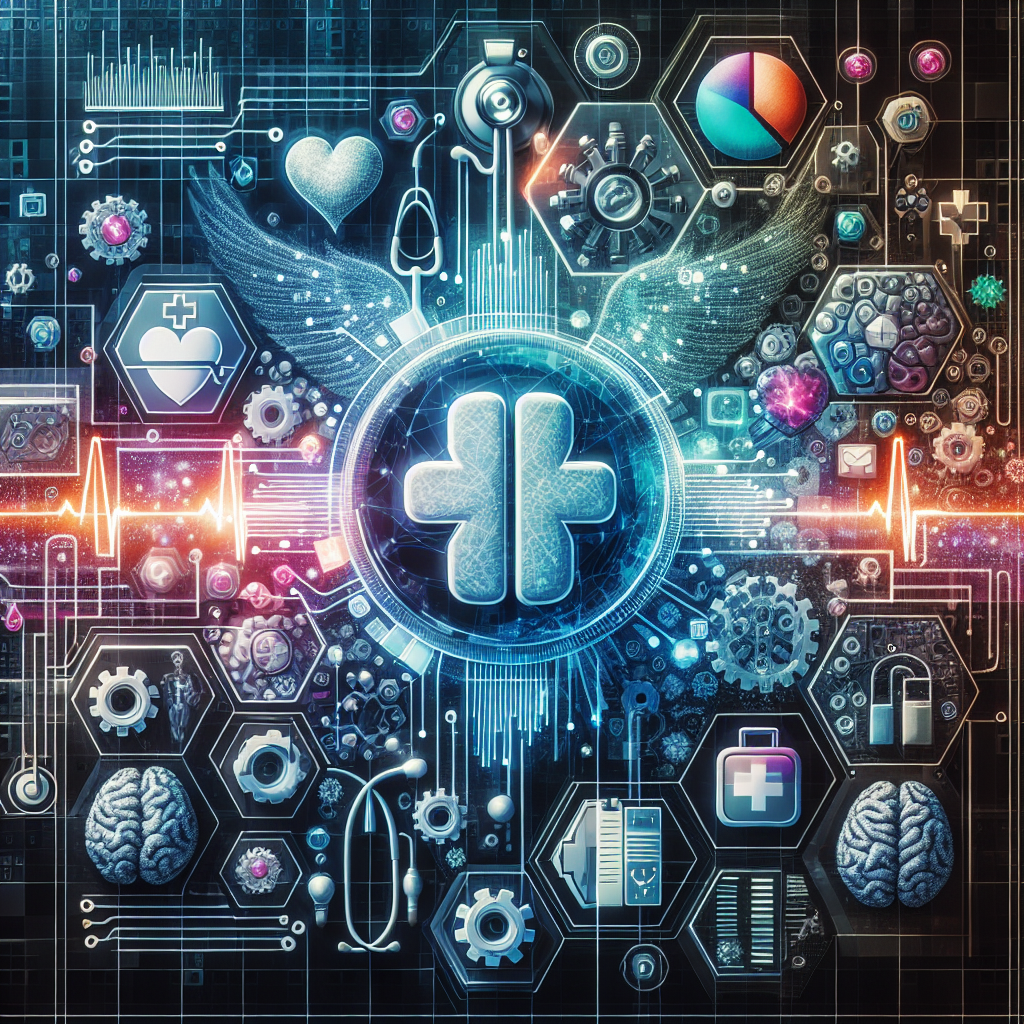Artificial Intelligence (AI) has been revolutionizing various industries, and healthcare is no exception. The integration of AI technology in healthcare has the potential to transform the way we diagnose, treat, and manage diseases. AI-powered healthcare is a game-changer that can improve patient outcomes, reduce costs, and enhance the overall efficiency of healthcare systems.
AI in healthcare involves the use of machine learning algorithms and other advanced technologies to analyze vast amounts of data, identify patterns, and make predictions. This enables healthcare providers to make more accurate diagnoses, tailor treatment plans to individual patients, and improve the overall quality of care. Here are some key ways in which AI is transforming the healthcare industry:
1. Diagnostics and Imaging: AI algorithms can analyze medical images such as X-rays, MRIs, and CT scans to detect abnormalities and assist radiologists in making accurate diagnoses. AI-powered imaging systems can help in early detection of diseases such as cancer, enabling timely treatment and improved outcomes for patients.
2. Personalized Medicine: AI technology can analyze a patient’s genetic makeup, medical history, and other relevant data to create personalized treatment plans. By tailoring treatments to individual patients, healthcare providers can achieve better outcomes and reduce the risk of adverse reactions to medications.
3. Predictive Analytics: AI algorithms can analyze patient data to predict the likelihood of developing certain diseases or complications. This enables healthcare providers to intervene early and prevent the progression of diseases, ultimately improving patient outcomes and reducing healthcare costs.
4. Remote Monitoring: AI-powered devices and wearables can monitor patients’ vital signs and health parameters remotely, enabling healthcare providers to track patients’ health status in real-time and intervene when necessary. This can be particularly beneficial for patients with chronic conditions who require continuous monitoring.
5. Drug Discovery and Development: AI technology can accelerate the drug discovery process by analyzing vast amounts of data to identify potential drug candidates and predict their efficacy. This can significantly reduce the time and cost involved in developing new drugs, ultimately benefiting patients by providing access to innovative treatments.
6. Administrative Efficiency: AI-powered systems can streamline administrative tasks such as scheduling appointments, billing, and coding, freeing up healthcare providers to focus on patient care. This can improve the overall efficiency of healthcare systems and reduce administrative costs.
Overall, AI-powered healthcare has the potential to revolutionize the way healthcare is delivered, making it more personalized, efficient, and effective. However, there are also challenges and concerns associated with the integration of AI in healthcare, such as data privacy and security, ethical considerations, and the potential for bias in AI algorithms.
FAQs:
Q: How is AI technology being used in healthcare?
A: AI technology is being used in healthcare for various purposes, including diagnostics and imaging, personalized medicine, predictive analytics, remote monitoring, drug discovery and development, and administrative efficiency.
Q: What are the benefits of AI-powered healthcare?
A: AI-powered healthcare can improve patient outcomes, reduce costs, enhance the efficiency of healthcare systems, and accelerate the drug discovery process. It can also enable personalized treatment plans tailored to individual patients.
Q: What are the challenges associated with AI in healthcare?
A: Some of the challenges associated with AI in healthcare include data privacy and security concerns, ethical considerations, and the potential for bias in AI algorithms. It is important to address these challenges to ensure the responsible and ethical use of AI technology in healthcare.
Q: How can healthcare providers ensure the responsible use of AI technology?
A: Healthcare providers can ensure the responsible use of AI technology by implementing robust data privacy and security measures, conducting regular audits of AI algorithms to detect and address biases, and adhering to ethical guidelines and regulations governing the use of AI in healthcare.
In conclusion, AI-powered healthcare is a game-changer that has the potential to transform the way healthcare is delivered, improving patient outcomes, reducing costs, and enhancing the overall efficiency of healthcare systems. While there are challenges and concerns associated with the integration of AI in healthcare, it is important to address these issues to ensure the responsible and ethical use of AI technology in healthcare. As AI technology continues to evolve, it is clear that the future of healthcare will be shaped by AI-powered innovations that benefit patients, healthcare providers, and society as a whole.

